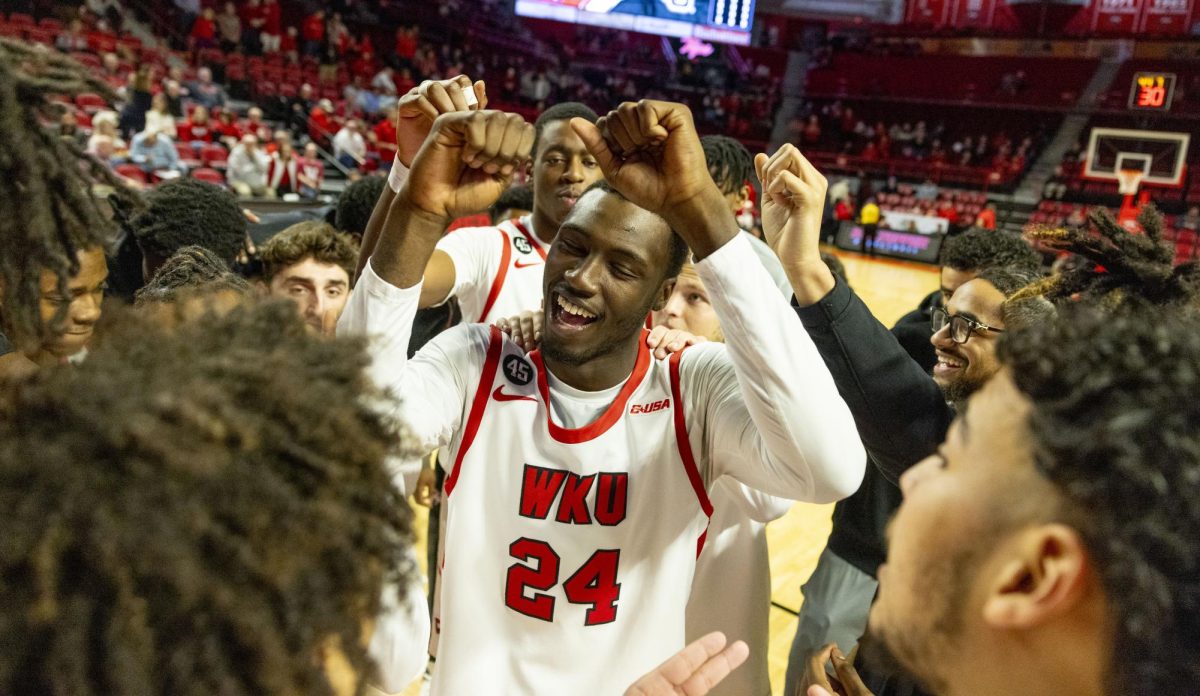Latin America series focuses on Brazil
April 1, 2014
The growing influence of Latin America is not always reflected in students’ study of international affairs, and not all teachers at WKU are satisfied with that.
Sonia Lenk, the associate professor of Spanish, has been at the forefront of creating the Latin American Series at WKU, which seeks to expose students to Latin American culture.
“I thought it was extremely important for students to get exposure to the region,” Lenk said.
This is the eighth Latin American Series. Previously, the intent of the series was to focus on all of Latin America, but recently it has tended to focus on one country. This year, the series is covering Brazil.
Lenk said Brazil was chosen largely because WKU has a visiting scholar from Brazil named Jose Rios.
Rios is on sabbatical from the Federal University of Ceará and chose to come to WKU due to his connections with the university’s Modern Languages Department.
Rios recently presented for the Latin American Series in order to dispel myths about Brazil and offer some facts about the country.
“Most people think that just because we are Latin Americans we should be able to speak Spanish,” he said. “We speak Portuguese.”
One of the big differences between the U.S. and Brazil is that Brazilians are more willing to physically show their affection, Rios said.
“You touch people more frequently,” he said.
Rios said that other differences include less strict organization in Brazil and a greater emphasis on punctuality in the U.S.
“People don’t worry, ‘Shy should I get there on time?’” Rios said of Brazilian culture.
With these cross-cultural dialogues, Rios said he hopes that both sides will take something positive away.
“We have something to contribute to your culture, just like you can contribute to ours,” Rios said.
Brazil is also important to discuss because of its rising economic status and since it will be hosting the 2014 FIFA World Cup, Lenk said.
Dawn Duke, chair of Africana Studies at the University of Tennessee, Knoxville, will give a presentation on Afro-Brazilians April 14 and 15.
Since WKU does not have Brazilian studies, Duke said it is important for students to learn more about the country.
“I think this presentation is a unique opportunity for them,” Duke said.
Brazil has the most African descendants of any non-African country and still faces issues with inequality and unemployment, Duke said.
“Generally speaking, there is still a lot of work to be done,” Duke said.
Ultimately, Lenk said it is important for students to get a wider perspective on Latin America in their careers and in their lives.
“No matter what you are doing, if you can prove that you are well versed in other cultures, you will be better fit in your work place and personal life,” she said.
Rios’ goal in his presentation was to get students to start thinking about Brazil in a new way.
“What I want students to learn is that we exist. We are not that exotic,” Rios said. “We are people, just like you.”













